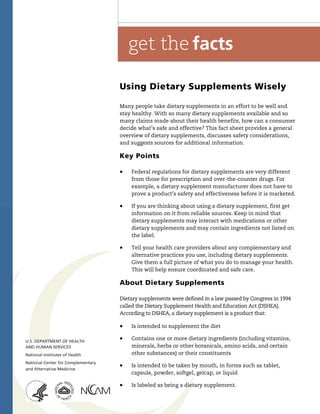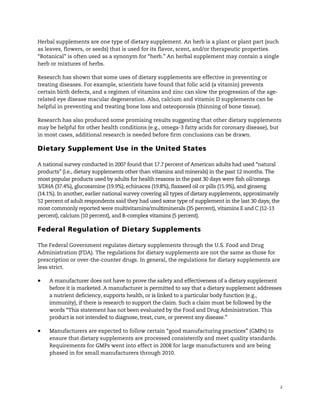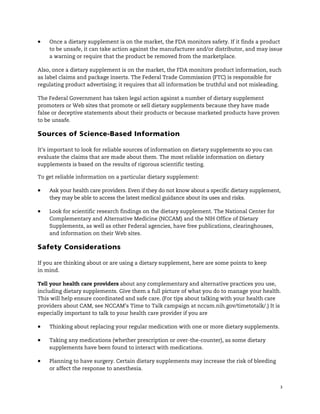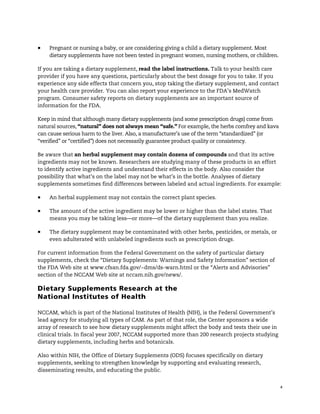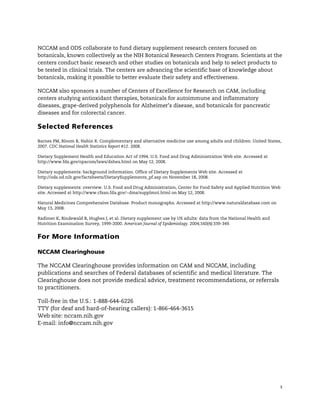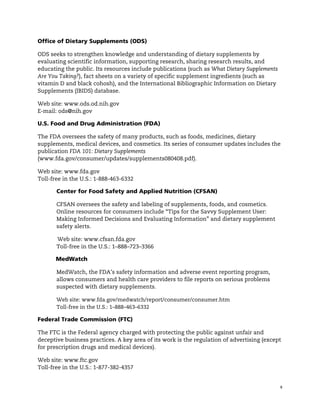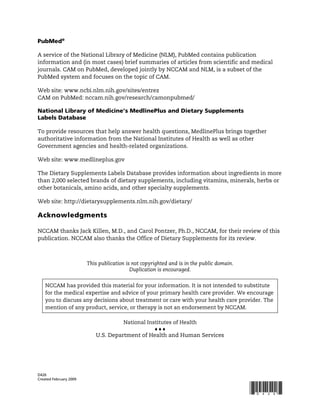Federal regulations for dietary supplements are less strict than those for drugs. Supplements are not required to prove safety before being sold. While some supplements like vitamins and minerals are considered generally safe, others can interact with medications or have unknown effects. It is important to research supplements and discuss their use with a healthcare provider to ensure safe use. The National Center for Complementary and Integrative Health funds research on supplements and provides science-based information to help consumers make informed choices.
